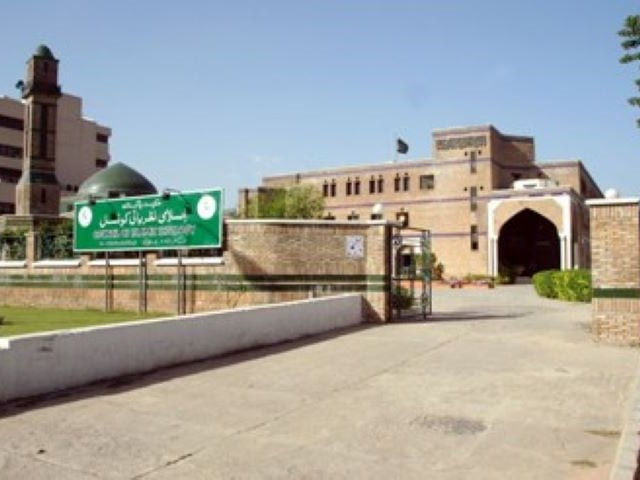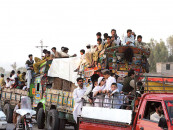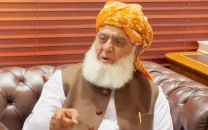Armed action prerogative of state: CII
Islamic advisory body issues guidelines for conducting protests

The Council of Islamic Ideology (CII) has ruled that militancy in Pakistan is against the Paigham-i-Pakistan communique, a fatwa jointly issued by 1,800 religious scholars of all the various schools of thought in 2018. The CII has also reiterated that suicide attacks are un-Islamic.
In a statement issued on Wednesday after its 235th meeting, the council stated that armed actions by some elements are contrary to the unanimous fatwas/declarations issued by all madrasa boards and the Paigham-i-Pakistan. “Armed actions are only the prerogative of the state,” it said.
The CII expressed hope that parliament elected after the upcoming elections will endorse the declarations of the Paigham-i-Pakistan and make efforts for effective legislation in this regard.
In the meeting, the council – in response to a reference sent by the president – approved a detailed code of ethics regarding the religiously permissible methods of protest.
The CII noted that every method of protest that is free from religiously prohibited actions and evils and does not inherently involve any other unlawful or forbidden activities, is permissible.
“It is not permissible to endanger lives, cause harm or distress to people, or cause damage to private or public property during protests.
“Forcing people to participate in protests against their will, using abusive language, indiscriminate mixing of genders, making false accusations, spreading lies, false news, and rumors, etc, are all impermissible actions,” it noted.
According to the CII, destroying or causing harm to public or private property for the sake of protest is also not permitted. The council emphasized that government properties are not owned by individuals but collectively by the entire nation
“If during a protest, someone's property is damaged, the ruling is that if the person or group causing the damage is identified, they are obligated to compensate for the loss.
“If the perpetrators cannot be identified, then it is the responsibility of the current government to compensate for the loss from the public treasury to the best of its ability,” the statement said.
It said it is never permissible or lawful to harm or cause damage to any person during a protest, regardless of whether they are a government employee or anyone else.
“The life, property, and honor of a Muslim are sacred and are even more esteemed than the sacred Kaaba. It is the responsibility of the organizers of the protest to ensure this and to impress upon the participants to completely refrain from any form of violence and terrorism.
“Protest organizers must ensure that no harm comes to any individual. If protesters go beyond the organizers' control and it becomes impossible to maintain peace during the protest, such protests should never be allowed to happen,” it added.
In response to some questions raised by the Faizabad sit-in commission, the council noted that declaring someone a non-believer (kafir) is an extremely sensitive matter with severe consequences. Therefore, rushing to make such a declaration is never appropriate.
Similarly, it is incumbent upon individuals to exercise extreme caution before labeling someone as a non-believer based on their statements or actions.
“Granting such authority to anyone and everyone goes against the principles of religious teachings and the principles of wisdom and public interest,” it added.
The Tehreek-e-Labbaik Pakistan (TLP) in November 2017 staged a sit-in in Islamabad to protest against changes in the lawmakers’ oath affirming that the Holy Prophet (PBUH) is the last messenger of God.



















COMMENTS
Comments are moderated and generally will be posted if they are on-topic and not abusive.
For more information, please see our Comments FAQ